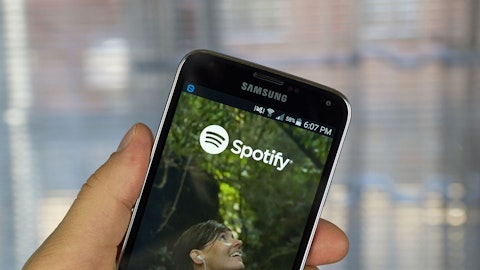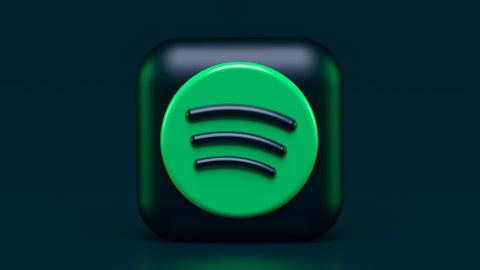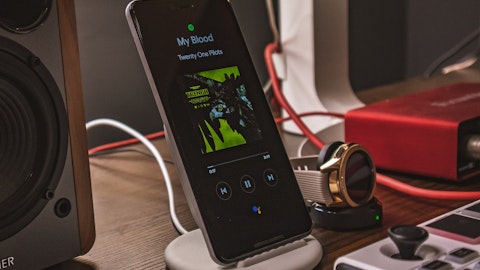Paul Vogel : Yes, we definitely increased marketing a lot or significantly in 2022. It was definitely a driver of the outperformance in MAU and very intentional. We had a plan and a focus at the beginning of the year to really invest, particularly in some of our newer markets to grow there and make sure that we have the foothold that we wanted to have. And by all accounts, it was extremely successful, if not more successful than we even thought. I do think you’ll see ’23 being — we’ll be more efficient with our marketing spend into 2023. As Daniel said, we’re going to be more efficient. We’re going to be more thoughtful about all of our spending into 2023. So, no specific guidance, but yes, there was a big ramp in 2022. And I think you’ll see us be more efficient with our marketing spend into ’23.
Bryan Goldberg: Okay. Another question for Ben Black on ticketing. Could you give us an update on your ticketing business? Is this an area of focus? And how should we be thinking about the business model and the market opportunity?
Daniel Ek: Yes. And just to level set on context. Long term, I think it’s absolutely a business model and market opportunity for Spotify, too. But our strategy is to be an open platform, and we want to enable as much as possible, and we are very partner-friendly when we’re doing so. So, think about, for instance, how we’re working with our label partners, think about how we’re working with merchandise and other things, too. It is not offering our own solution and locking people in. It is opening up the platform so that creators have as much choice as possible in choosing whatever options they want to do. So, the primary strategy is very simple. We see a double-sided win-win here, which long term will translate into business opportunity.
But our creators are trying to grow their audience on Spotify. They’re trying to engage more with that audience, and we’re obviously trying to help them monetize that audience even better. A huge part of that, especially for the music audience is obviously touring. So, if we can be a partner to creators and help them sell more of their tickets, that is a meaningful increase to many artists’ livelihood, which is great and something we’re focused on. But the separate part is on the user side, the same is true as well. One of the big things we’re seeing is users are asking us, help me find more great things to go watch. And we saw a tremendous uptake in the number of people who are visiting the Concerts tab on Spotify in 2022. But the strategy isn’t to go compete with the ecosystem, but rather to enable the ecosystem.
And then from there on, there will be opportunities for us to play as well. And you can see that already today where there’s lots of concerts from all the big vendors being available, and we’ll add more and more of inventory. And over time, that will translate into business opportunities for Spotify as well.
Bryan Goldberg: Okay. Next question from Mario Lu on cost savings. Can you help quantify the annual savings from the headcount reduction you announced last week? And any specific areas of the business to call out that were impacted more so than others?
Paul Vogel : We’re not going to quantify the savings. Obviously, you can do the math. It’s roughly 600 employees that were affected. The 6% was actual employees. We — so are looking closely at open headcount to see which of those we want to backfill and which of those we will also eliminate sort of, as we’ve mentioned a number of times as we try and be more efficient with deploying capital and employees moving forward. And there wasn’t really any specific area. It was pretty broad-based across most of the divisions within Spotify.



